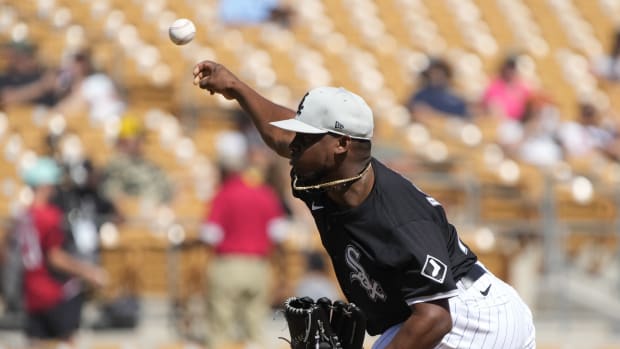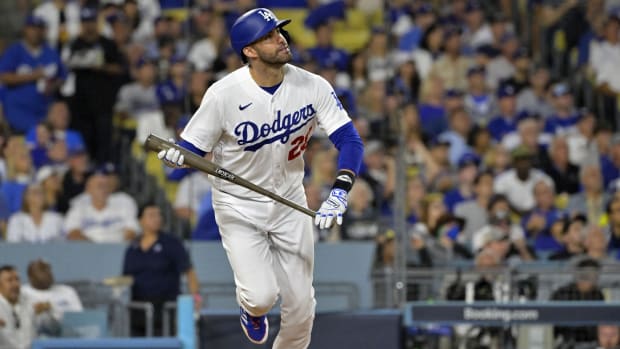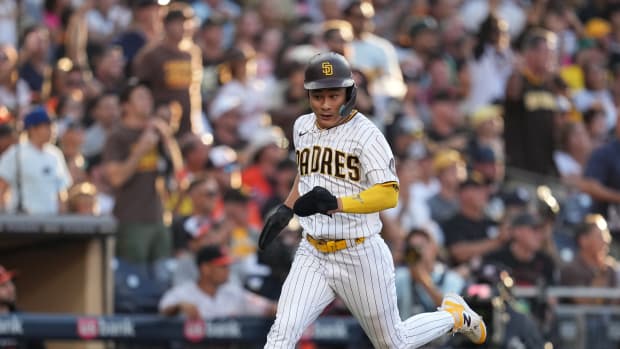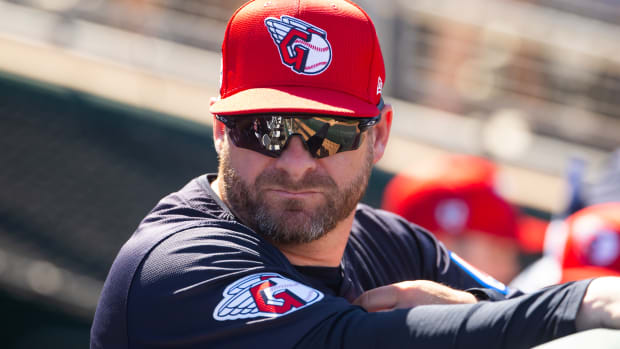How MLB Can Defend Sign-Stealing Lawsuits From Daily Fantasy Players
Will “Spygate” help Major League Baseball contain the fallout of the electronic sign-stealing scandal?
This unusual question stems from a new filing by MLB in the U.S. District Court for the Southern District of New York. The league, along with the Houston Astros and Boston Red Sox, hope to thwart a deceptive practices lawsuit brought by a daily fantasy sports contestant. Key to that effort is a decade-old case precedent involving a New York Jets season-ticket holder who unsuccessfully sued the New England Patriots over their use of technology for competitive gain.
Recapping Olson v. MLB, Astros and Red Sox
As recently analyzed by Sports Illustrated, DraftKings contestant Kristopher Olson filed a 52-page complaint in January seeking compensation for what he terms a violation of his consumer rights. In recent years, Olson and other DFS contestants wagered money on predicting player statistics. They did so while being denied knowledge that Astros batters were artificially inflating their stats. Astros batters from the 2017 season were the main beneficiaries of a cheating scheme that relied on a camera in Minute Maid Park’s centerfield, a hallway monitor adjacent to the clubhouse and the banging of a trash can near the dugout. The Red Sox play a less certain role in the litigation: they are under investigation for possible cheating but MLB has not yet announced the findings.
The alleged nexus between DFS players—who are in contract with DraftKings, not MLB—and baseball stems from MLB cultivating a business and sponsorship relationship with DraftKings. This relationship means that MLB and its clubs financially gain from consumers spending money on DFS contests. It also means, Olson argues, that consumers had legitimate reason to believe that MLB vouched for the integrity of DFS contests that were predicated on Astros (and possibly Red Sox) games.
Several other DFS contestants have joined Olson’s lawsuit. Olson, a Massachusetts-based journalist and attorney, seeks to have his case certified as a class action that would demand millions of dollars in damages and culminate in a jury trial. The class would represent all persons who participated in, and who paid entry fees and entered line ups, in DraftKings MLB DFS contests held between April 2, 2017 and Oct. 30, 2019. Judge Jed Rakoff—a prominent jurist, baseball fan and skeptic of the “judge as an umpire” analogy—is presiding over the litigation.
Unpacking MLB’s key defenses
MLB, along with the Astros and Red Sox, recently filed motions to dismiss Olson’s complaint. MLB is represented by New York attorney John Hardiman and his colleagues at the international law firm Sullivan & Cromwell.
MLB’s attorneys raise several defenses, five of which are detailed below.
1. The defense of notice
First, the league contends that DFS contestants have long been on notice of the possibility that MLB clubs and other sports teams sometimes try to gain an unfair advantage. This is a risk, MLB maintains, DFS players knowingly accept. It is also a risk that doesn’t cause an injury to fans that the law ought to remedy.
In raising this defense, MLB notes that the Red Sox were fined for using technology in 2017 to allegedly steal signs against the New York Yankees (the Red Sox used Apple Watches; the Yankees, meanwhile, were fined for using a dugout phone in 2016 without authorization). This point reminds the court that while MLB only notified the baseball community of the Astros scandal last month, the risk that teams might use technology to steal signs has been known for some time. In that same vein, Sports Illustrated senior writer Tom Verducci recently detailed the very long history of electronic sign-stealing accusations brought against MLB clubs. Since the 19th century, MLB clubs have partaken in various schemes that relied on binoculars, telescopes, underground wires, junction boxes, buzzers, bulbs in scoreboards and other technologies. DFS contestants, in other words, should have known when paying entry fees that MLB ballgames could be impacted by electronic sign stealing.
MLB further contends that DFS contestants know or should know that “disgruntled sports fans” consistently lose lawsuits premised on game rules violations. MLB highlights Carl Mayer v Bill Belichick, a case that the U.S. Court of Appeals for the Third Circuit tossed out of court in 2010, to underscore this point.
The genesis of Mayer v. Belichick was the Spygate controversy of 2007. During a game against the Jets at Giants Stadium, the Patriots breached an NFL policy regarding the placement of cameras. While NFL teams routinely use cameras to record opponents, the Patriots’ mistake concerned the placement of a camera in an unauthorized area. NFL commissioner Roger Goodell punished the Patriots by stripping the team of a first-round draft pick and imposing fines. Mayer v. Belichick is appealing to MLB’s attorneys since it involves an analogous fact-pattern of a team using technology to gain an advantage.
Mayer, a New Jersey resident and Jets season-ticket holder, sued Belichick, the Patriots and the NFL. He insisted the Patriots had “violated the contractual expectations and rights of Jets ticket-holders who fully anticipated and contracted for a ticket to observe an honest match.” The lawsuit failed for a simple reason: while understandably annoyed that his favorite team was disadvantaged in a game against an arch-rival, Mayer lacked a viable legal theory of recovery. The Patriots and the NFL fulfilled the obligations of Mayer’s game ticket—he watched the Jets host the Patriots from a particular seat. Plus, Mayer hadn’t suffered a kind of harm that the law remedies. Frustration, disappointment and aggravation are all real and genuine human emotions. Yet in law, they alone don’t prove a claim.
With Mayer v. Belichick in mind, MLB maintains that even if DFS contestants are genuinely disappointed in MLB (and in the Astros and possibly in the Red Sox), they can’t prove they were “deceived into believing that rule violations would never occur.” Fans and DFS contestants, MLB argues, should have a “general awareness” of teams and athletes sometimes breaking rules to attempt to cheat. Those attempts, MLB asserts, can alter the outcomes of games and player performances. If DFS contestants find that kind of risk objectionable, perhaps they should not play DFS.
2. The defense of accurate stats and unpredictable outcomes
Second, MLB highlights the accuracy of the statistics used in DFS contests. While cheating corrupted players’ stats, the stats still reflected players “real-life performance” and “actual events that took place on the field.” Cheating or not, the stats were real and, MLB asserts, not evidence of a deceptive practice.
To advance that point, MLB stresses that player stats are influenced by “a myriad of factors” that go beyond a player’s skills and typically beyond his control, too. Those factors include “illness, injury, weather, umpiring, luck, fan interference, field conditions and hot (or cold) streaks.”
From that lens, MLB player cheating is merely one additional factor that can affect performance. DFS contestants are, or should be, aware of these variables when paying entry fees. If they aren’t comfortable with the variables of cheating, bad umpiring, player injuries or scores of other negative things that can occur during a game, then DFS might not be a good use of their money, time or energy.
3. The defense of no actionable promises by Rob Manfred
Third, MLB maintains that MLB officials have never promised that (1) MLB games are “bereft of any rule violations” or that (2) MLB’s relationship with DraftKings has any bearing on whether games are more or less likely to suffer from cheating.
MLB insists that any statements by commissioner Rob Manfred about the “integrity of baseball” are not, and have never been, guarantees that cheating hasn’t occurred or can’t occur. These statements, MLB reasons, are merely expressions about ideals of the sport. They are also general assurances that MLB takes reasonable measures, within the confines of a collective bargaining agreement, to deter cheating and related activities.
4. The defense of no relationship between DFS contestants and MLB
Fourth, MLB contends that DFS contestants lack a sufficient relationship with MLB or its clubs. Without a contractual relationship, MLB arguably owes no legal duty to the DFS contestants. In law, the absence of a contractual relationship is sometimes termed a “lack of privity.” It can serve as a powerful defense.
To advance that point, MLB once again draws on Mayer v. Belichick. The Third Circuit reasoned that Mayer, a Jets fan and ticketholder, had no legally cognizable interest in whether the Patriots adhered to NFL rules. MLB supplements Mayer v. Belichick by citing other litigation involving fans’ who were, for one reason or another, disappointed in a sporting event and who unsuccessfully brought litigation over their grievances. MLB cites cases centering on the New Orleans Saints losing the 2019 NFL championship on a bad no-call or and on fights involving Manny Pacquiao, Floyd Mayweather and Mike Tyson. MLB maintains these cases show that (1) a referee missing a penalty call or making a blown call; (2) an athlete concealing an injury—Pacquiao’s shoulder; or (3) a sporting event ending in a disqualification—Tyson biting an opponent’s ear—does not prove that fans suffered a legally cognizable injury. Courts, MLB argues, are not “replay booths”.
MLB also maintains an absence of a relationship with DFS contestants by virtue of the fact that contestants pay DraftKings (or FanDuel), not MLB. Further, DFS contestants contractually assent to binding arbitration as a condition of playing DFS. MLB notes that if DFS contestants can sue MLB through DraftKings, then the arbitration provision—which, if applicable, would likely lead Judge Rakoff to dismiss the case as not yet ripe for adjudication, since the compulsory arbitration proceeding has not yet occurred—would apply.
5. The defense of inapplicable state laws
Fifth, MLB rejects Olson’s claims for unjust enrichment, which in this litigation refers to Olson’s assertion that MLB (and the Astros and possibly the Red Sox) acquired ill-gotten gains through fans paying DraftKings to partake in DFS contests. MLB asserts these claims are not recognized under applicable state laws in California and Texas. Although Olson’s complaint relies on other sources of law, MLB hopes to at least reduce the scope of the case by insisting that certain claims are not supported by law.
Next steps
Olson and his attorney, David Golub of Silver, Golub & Teitell, will have an opportunity to oppose the motions to dismiss filed by MLB, the Astros and the Red Sox. Expect Olson to downplay the relevance of cases highlighted by MLB on grounds that he is not suing as a fan, ticketholder or a pay-per-view viewer. Rather, he is suing as a consumer—and one who engaged in DFS transactions predicated on games produced by a sports league that does business with the DFS company with whom Olson was in contract. From that lens, Olson wasn’t so much a “fan” as he was a market participant. In fact, he might not have cared at all about the Astros or Red Sox, or their players. As a DFS contestant, he cared foremost about accurately predicting players stats and placing his wagers in a credible marketplace.
Olson will also stress that some of the cases cited by MLB (and the Astros and Red Sox) are from outside of the Southern District of New York and its governing appellate court, the U.S. Court of Appeals for the Second Circuit. Cases outside of those courts constitute persuasive authority, not binding precedent.
Sports Illustrated will keep you posted on the litigation.
Michael McCann is SI’s Legal Analyst. He is also an attorney and the Director of the Sports and Entertainment Law Institute at the University of New Hampshire Franklin Pierce School of Law.


































